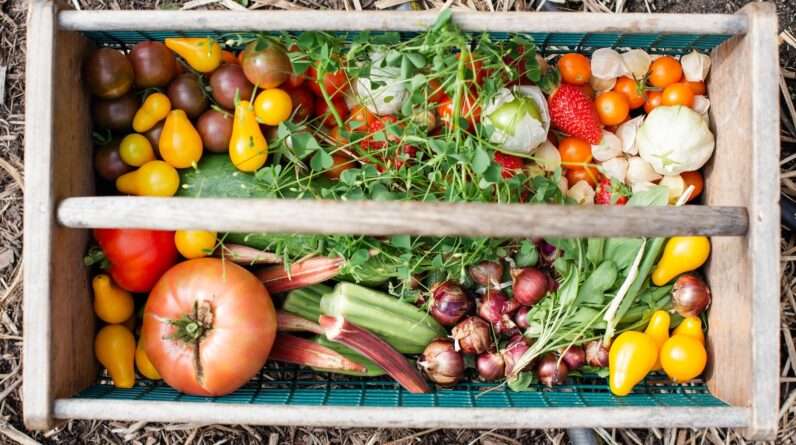
Are you ready to join a movement that not only benefits you, but also serves others? Discover the power of community gardens and sustainable living.
These incredible spaces offer a bountiful harvest of fresh produce, while promoting environmentally-friendly practices. By growing your own food and connecting with like-minded individuals, you can cultivate a strong sense of community and make a positive impact.
Get ready to share the bounty and embrace a sustainable lifestyle that nourishes both you and those around you.
Key Takeaways
- Community gardens provide increased access to fresh produce and promote sustainable living.
- Sustainable practices in community gardening include water conservation, composting, recycling, and natural pest control.
- Growing your own food in community gardens empowers individuals, reduces carbon footprint, and fosters connections and knowledge sharing.
- Community gardens cultivate social bonding through collaborative learning, shared responsibility, a sense of belonging, and opportunities for continuous growth.
The Benefits of Community Gardens
You should experience the many benefits of community gardens, such as increased access to fresh produce and a sense of belonging.
Community gardens provide a wonderful opportunity for individuals to grow their own fruits and vegetables, ensuring a steady supply of nutritious food. By participating in a community garden, you can have access to a variety of fresh produce that may not be easily available or affordable in stores.
Additionally, community gardens foster a sense of belonging and create a space for people to connect with others who share a passion for gardening and sustainable living. Working together in these gardens not only promotes physical health but also strengthens social ties within the community.
Community gardens truly offer a win-win situation, enabling individuals to serve others while reaping the rewards of fresh, homegrown produce.
Sustainable Practices in Community Gardening
An article about sustainable practices in community gardening will provide you with valuable insights on how to minimize waste and maximize the environmental benefits of your garden. Here are some key points to consider:
- Water conservation: Implementing drip irrigation systems and using mulch can help conserve water and reduce evaporation.
- Composting: Creating a compost pile with kitchen scraps and garden waste can provide nutrient-rich soil for your plants while reducing landfill waste.
Recycling: Set up designated recycling bins in your community garden to encourage proper disposal of plastic, glass, and paper waste.
- Organic pest control: Avoid harmful chemicals by using natural methods like companion planting, beneficial insects, and homemade pest sprays.
Growing Your Own Food: Community Gardens as a Solution
Growing your own food in community gardens is an empowering way to take control of your food supply and promote sustainable living. By participating in community gardening, you not only have the opportunity to grow fresh and healthy produce but also contribute to reducing your carbon footprint.
Community gardens utilize sustainable practices such as composting and organic gardening techniques, which minimize the use of harmful chemicals and protect the environment. Moreover, community gardens foster a sense of connection and unity among participants, cultivating a strong bond and a shared purpose.
Working alongside others to tend to the garden creates opportunities for collaboration, knowledge sharing, and building relationships. These connections extend beyond the garden, strengthening the social fabric of the community.
Cultivating Connections: Community Gardens and Social Bonding
By actively participating in community gardens, you can effortlessly foster meaningful social connections and strengthen the bond within your community. Community gardens provide a unique opportunity for individuals to come together and work towards a common goal, creating a sense of belonging and camaraderie.
Here are some ways community gardens can help cultivate connections:
- Collaborative Learning: Engaging in community gardening allows you to learn from experienced gardeners and share your knowledge with others, creating a space for continuous learning and growth.
- Shared Responsibility: Working together in a community garden promotes a sense of shared responsibility, as everyone contributes to the maintenance and success of the garden. This shared responsibility builds trust and encourages teamwork.
Through community gardens, you can’t only grow fresh produce and contribute to sustainable living but also forge meaningful connections with like-minded individuals, fostering a stronger sense of community and making a positive impact in the lives of others.
Empowering Communities Through Sustainable Living in Community Gardens
You can empower your community by actively participating in sustainable living practices through community gardens, fostering a sense of ownership and responsibility for the environment.
Community gardens offer a unique opportunity for individuals to come together and make a positive impact on their surroundings. By growing your own food, you not only reduce your carbon footprint but also promote food security and self-sufficiency within your community.
Additionally, community gardens serve as educational spaces where people can learn about organic gardening, composting, and the importance of biodiversity. They also provide a platform for individuals to collaborate, share resources, and develop strong social bonds.
Frequently Asked Questions
How Can Community Gardens Contribute to Environmental Sustainability?
Community gardens contribute to environmental sustainability by providing a space where individuals can grow their own food, reducing the need for transportation and packaging. They also promote biodiversity and conserve water through sustainable gardening practices.
What Are Some Tips for Starting a Community Garden in My Neighborhood?
To start a community garden in your neighborhood, gather like-minded individuals and secure a suitable location. Plan the layout, choose sustainable gardening practices, and establish a system for sharing the harvest.
How Can Community Gardens Help Address Food Insecurity in Urban Areas?
Community gardens help address food insecurity in urban areas by providing access to fresh, nutritious produce. They empower individuals to grow their own food, promote community engagement, and foster sustainable living practices.
What Are Some Challenges Typically Faced by Community Garden Organizers?
Some challenges typically faced by community garden organizers include securing land, obtaining funding, recruiting volunteers, and managing conflicts. It can also be challenging to ensure the long-term sustainability and success of the garden.
Are There Any Government Programs or Grants Available to Support the Establishment of Community Gardens?
Yes, there are government programs and grants available to support the establishment of community gardens. These programs aim to promote sustainable living and provide resources for organizers to create successful gardens in their communities.







